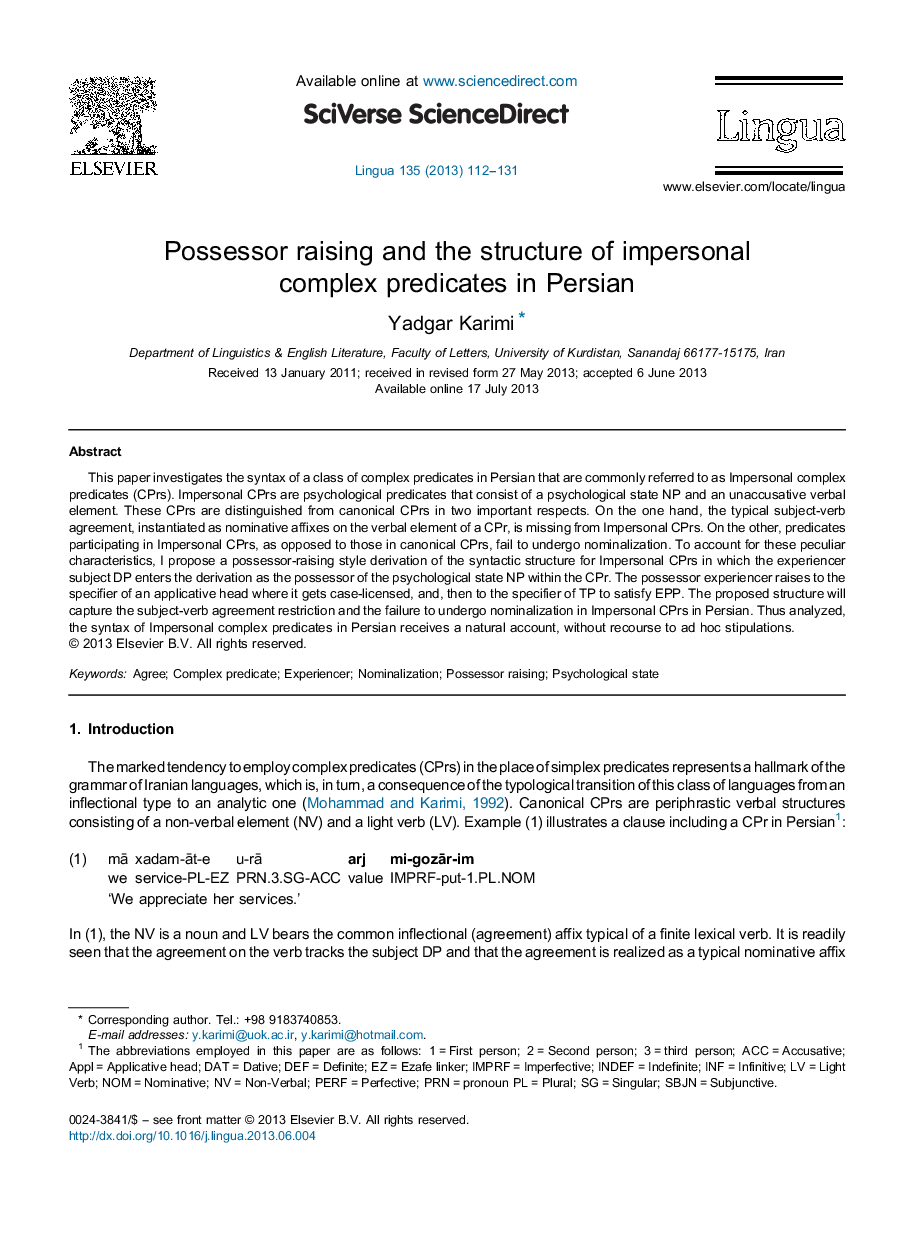| کد مقاله | کد نشریه | سال انتشار | مقاله انگلیسی | نسخه تمام متن |
|---|---|---|---|---|
| 935691 | 1475073 | 2013 | 20 صفحه PDF | دانلود رایگان |

• Impersonal complex predicates in Persian are psychological predicates consisting of a psychological state NP and an unaccusative verb.
• The experiencer DP in an impersonal complex predicate construction is doubled by a dative clitic.
• As opposed to canonical complex predicates, impersonal complex predicates resist nominalization.
• It is shown that the experiencer subject DP in impersonal constructions is base-generated as the possessor of the psychological state NP and then raises to subject position.
This paper investigates the syntax of a class of complex predicates in Persian that are commonly referred to as Impersonal complex predicates (CPrs). Impersonal CPrs are psychological predicates that consist of a psychological state NP and an unaccusative verbal element. These CPrs are distinguished from canonical CPrs in two important respects. On the one hand, the typical subject-verb agreement, instantiated as nominative affixes on the verbal element of a CPr, is missing from Impersonal CPrs. On the other, predicates participating in Impersonal CPrs, as opposed to those in canonical CPrs, fail to undergo nominalization. To account for these peculiar characteristics, I propose a possessor-raising style derivation of the syntactic structure for Impersonal CPrs in which the experiencer subject DP enters the derivation as the possessor of the psychological state NP within the CPr. The possessor experiencer raises to the specifier of an applicative head where it gets case-licensed, and, then to the specifier of TP to satisfy EPP. The proposed structure will capture the subject-verb agreement restriction and the failure to undergo nominalization in Impersonal CPrs in Persian. Thus analyzed, the syntax of Impersonal complex predicates in Persian receives a natural account, without recourse to ad hoc stipulations.
Journal: Lingua - Volume 135, October 2013, Pages 112–131